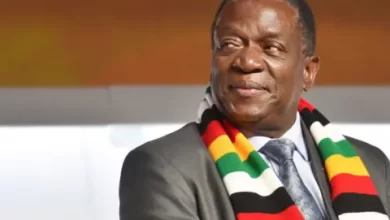Letter from 16-year-old girl
Greet ings f rom the Munda wa Chitedze Fa r m w h e r e I relocated from the hustle and bustle of your city. Here, peace and only peace reigns supreme and we don’t suffer in silence.
You see, this other day a little girl came with a letter in her hands. She came to see one of the villagers. Her story tore our hearts. She was raped by a 60-year-old man who made her pregnant. A hospital refused to help her carry out an abortion, although signs were clear the pregnancy was affecting her mental health, as well as a threat on her life.
Later in the night, hot as it is, I had a dream. I had a dream that the girl gave me a letter. I don’t know if I read the letter loudly in my sleep. It’s been so long since I had a soliloquoy.
I never imagined that my name would be written into the legal history of Malawi. I am just a girl—16 years old, from a quiet village, with dreams of becoming a lawyer.
But when I was raped and became pregnant, my life changed in ways I could never have prepared for. What followed was not just pain and confusion, but a battle for dignity, justice, and the right to choose.
When I went to the health centre, I was denied a safe abortion. I was told to carry the pregnancy to term, as if my body were not my own, as if the violence done to me was not enough. I felt invisible. I felt punished for something I did not choose. And so, with the help of brave lawyers and advocates, I took my case to court.
On Tuesday, the High Court of Malawi ruled in my favour. Justice Michael Tembo declared that girls and women who become pregnant through rape or defilement have the right to access safe abortion services. He cited the Gender Equality Act, affirming that denying such care violates our constitutional rights. I was awarded compensation: K3 million.
But, most importantly, I was heard.
This ruling is not just about me. It is about every girl and woman in Malawi who has been silenced, shamed, or forced to suffer in silence. It is about the thousands of young women who face sexual violence and then are told to endure its consequences without support or choice. It is about a country that must decide whether it will protect its daughters or abandon them.
Globally, we are witnessing a reckoning on reproductive rights. From the United States to Latin America, from Poland to Kenya, the debate over abortion is no longer just about law—it is about identity, freedom, and equality. Malawi has now joined that conversation, and I am proud to have played a part.
Even our British colonial masters, from whom we inherited such laws in 1925 repudiated them!
But let us be clear: this is not the end. The ruling sets a precedent, yes, but it must be followed by action. Health centres must be equipped. Clinical officers must be trained. The Ministry of Health must issue clear guidelines. And most of all, society must change its attitude toward girls like me.
Some will argue that unlike me, some girls and women will feign that their pregnancy arose from rape. Far from it. To get this legal and necessary health right, you have to bring concrete evidence that you were indeed raped. As in my case, the old man who raped me is now in prison!
I did not ask to be raped. I did not ask to become pregnant. But I did ask to be treated with dignity. And now, I ask my country to stand with me— not just in courtrooms, but in classrooms, clinics, and communities.
Some will say I am too young to speak on such matters. But I say: if I am old enough to be violated, I am old enough to demand justice. If I am old enough to carry a pregnancy, I am old enough to decide whether I should carry it.
I hope my story inspires other girls to speak up. I hope it reminds leaders that laws must serve the people, especially the most vulnerable. And I hope it teaches Malawi that progress is not measured by GDP or infrastructure, but by how we treat those with the least power.
I am 14. I was raped. I fought back—and I won. But the real victory will come when no girl has to fight this battle again.
I woke up with a start! Funny things, dreams!
When I woke up, Sameer Suleman was the Speaker of the National Assembly! The thought of desperados becoming town sherrifs may seem like a dream but, here we are.
I imagine Catherine Gotani Hara or Richard Chimwendo Banda trying to rise on a point of order! But will the MPs think about that girl




